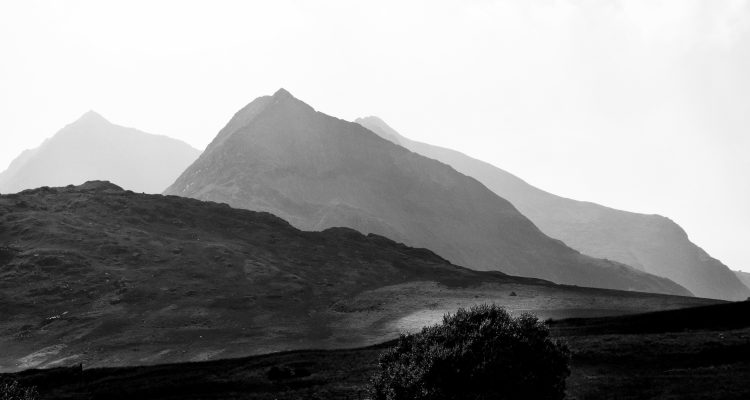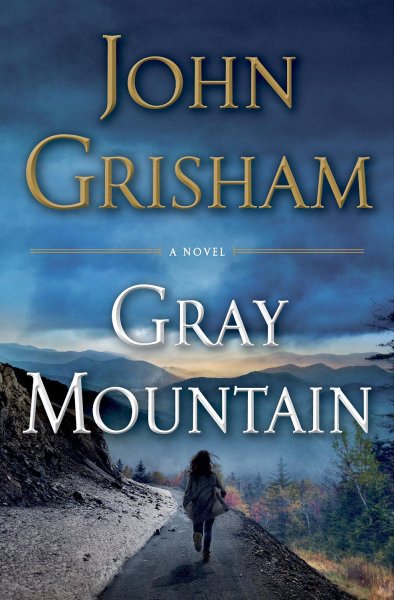By Bill Hanna
Weelunk Contributor
John Grisham’s first legal thriller, “A Time to Kill,” was published all the way back in 1989, and the recent publication of his newest novel, “Gray Mountain,” brings his grand total in the genre to an impressive 24. Although I still consider his first book the best of all of them, Grisham’s career didn’t really take off until “The Firm” hit the bookstores in 1991.
Grisham, who was a lawyer before giving up his practice to be a fulltime author, has made a very nice living as a writer because a number of his books have been adapted for the silver screen, and his novels have been translated into 40 different languages. I’ve read all his legal thrillers throughout the years, and the only one I really did not care for was “The Chamber,” the story of a death row inmate.
All this brings us to an evaluation of “Gray Mountain,” which in my humble opinion is far and away the worst book Grisham has ever written. After reading the first third of it, I debated giving up, but something urged me to plod through it until I mercifully finished it.
The novel begins in Manhattan, where young attorney Samantha Kofer is sitting on park bench in 2008 waiting to hear whether or not she still has a job after a recession has hit Wall Street. From where she is sitting, she can see the building where she works, and we learn about her firm.
“It (the building) was called 110 Broad, and the top half was leased by Scully & Pershing, the biggest law firm the world had ever seen. Her firm, for now, though the future was anything but certain. Two thousand lawyers in twenty countries, half of them in New York City alone, a thousand right up there packed together on floors 30 through 65. How many wanted to jump? She couldn’t guess, but she wasn’t the only one. The world’s largest law firm was shrinking in chaos, as were its competitors. Big law, as it was known, was just as panicked as the hedge funds, investment banks, real banks, insurance conglomerates, Washington, and on down the food chain to the merchants on Main Street.”
Like many of her colleagues Samantha is furloughed for a year until the financial crisis eases. Under the terms of the agreement she can keep her health benefits if she is willing to do a free internship with a nonprofit organization. She also will receive no pay from her employer, and if things improve after a year, she can rejoin the firm without losing any seniority. Samantha’s law firm prepares a list of possible nonprofit places where those who have been furloughed can apply for internships. And that’s how Samantha ends up in Brady,Va., an Appalachian town with a population of just 2200.
The only place left for Samantha to do an internship is the Mountain Legal Aid Clinic in Brady, an organization founded by Mattie Wyatt 27 years ago. Here is the way the place is described in the novel.
“Its mission was simple: ‘Provide free legal services for low-income clients in southwest Virginia.’ Its areas of service included domestic relations, debt relief, housing, health care, education, and benefits due to black lung disease.”
Now both of Samantha’s divorced parents are attorneys who live in Washington, D.C., where her mother works in the justice department, and her father, who spent time in prison for a shady deal, is part of a consulting firm. Samantha visits them on her way to Brady, and both of them try to talk her out of taking the internship, but she ignores their advice, and the main part of the novel is about her experiences at the clinic.
Samantha, who has never been court, soon learns that most of the clients who come to the clinic are people with a complaint about illnesses or deaths caused by exposure to the coal industry. Soon after her arrival in Brady, she meets Donovan Gray, Mattie’s nephew, and he’s an attorney who has devoted his career to bringing lawsuits against large coal companies.
As the story progresses, Samantha finds herself drawn into Donovan’s fight against Big Coal, but when she sees the lengths that he and his brother, Jeff, will go to win the cases, she’s not so sure she wants to be involved in the whole thing. In addition to one major case, Grisham throws a lot of smaller lawsuits in along the way because if he hadn’t, the book probably wouldn’t have been more than 20 or 30 pages long.
Grisham also pads the novel with tedious accounts of hikes that Donovan and Samantha and Jeff and Samantha take through the mountains that have been raped by the coal companies. Sometimes these accounts drag on insufferably throughout the book. In his earlier novels like “A Time to Kill” and “The Firm,” Grisham created and maintained a high degree of tension and mystery, but you won’t find any of that here.
Another thing Grisham does in this book is offer up nothing but one-dimensional characters. We learn very little about them throughout the story, and what we do find out is so uninteresting that it’s a waste of time. Jake Brigance from “A Time to Kill,” Mitch McDeere from “The Firm,” and Darby Shaw from “The Pelican Brief” are characters with some depth to them, and as such they make us want to be involved in their lives.
The only remotely likable character in “Gray Mountain” is Mattie because, unlike those surrounding her, she seems like a real person. And the biggest disappointment in the story is Samantha, who is supposed to be the heroin. When she’s not out hiking through strip-mining country, she spends a lot of her time feeling sorry for herself and trying to decide whether to stick it out in Brady or flee back to her beloved New York. Halfway through the novel, I was hoping she would just go home so the book would end.
Finally, Grisham never gives us a physical description of the characters in the story, and I like to be able to picture the people about whom I’m reading. In his earlier novels Grisham at least gave a hint as the physical appearance of the characters, but in this one they might all as well be faceless clones. And to top everything else off, the sex in the story is so gratuitous that it’s laughable. It’s almost as if Grisham threw it in as an afterthought.
Grisham’s name alone may be enough to land “Gray Mountain” on a bestseller list somewhere, but if that happens, it will be interesting to see how long it stays there when word gets around about how incredibly shallow and downright boring it is. Also, I am eager to see whether or not Hollywood will want to turn it into a film. If that happens, it will be a rare occasion of when the movie will be better than the book because it certainly can’t be any worse.





